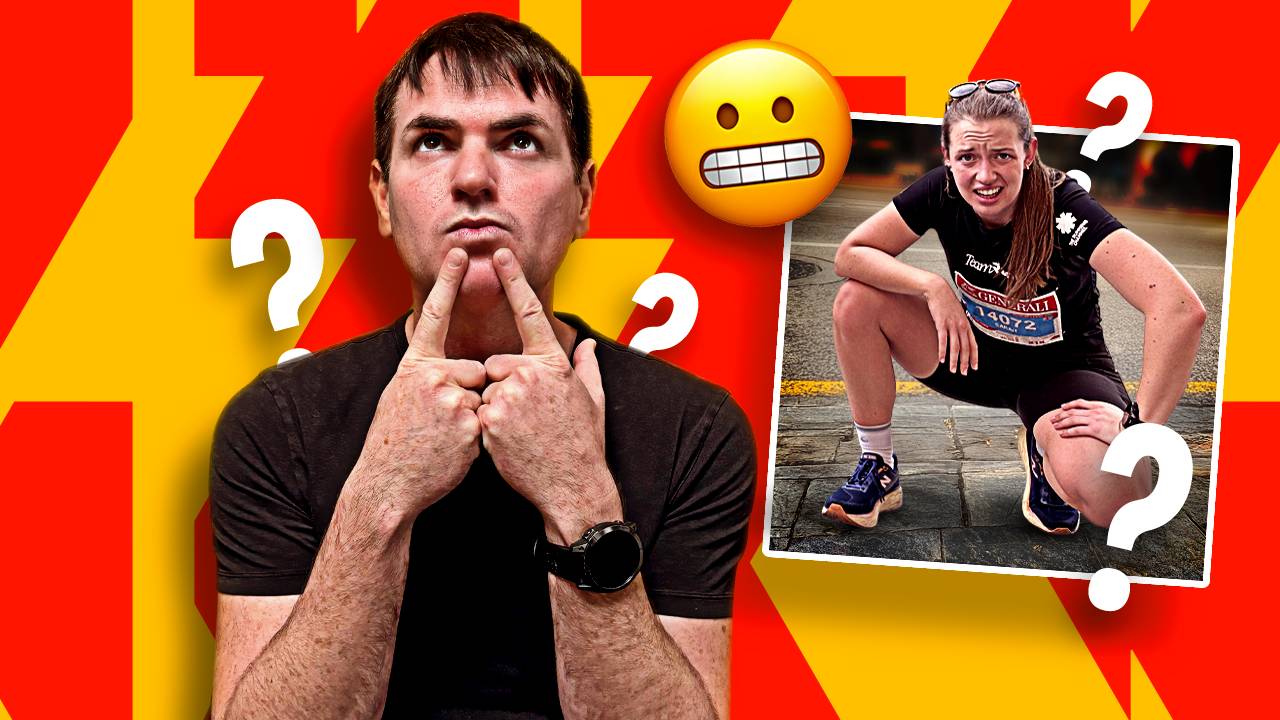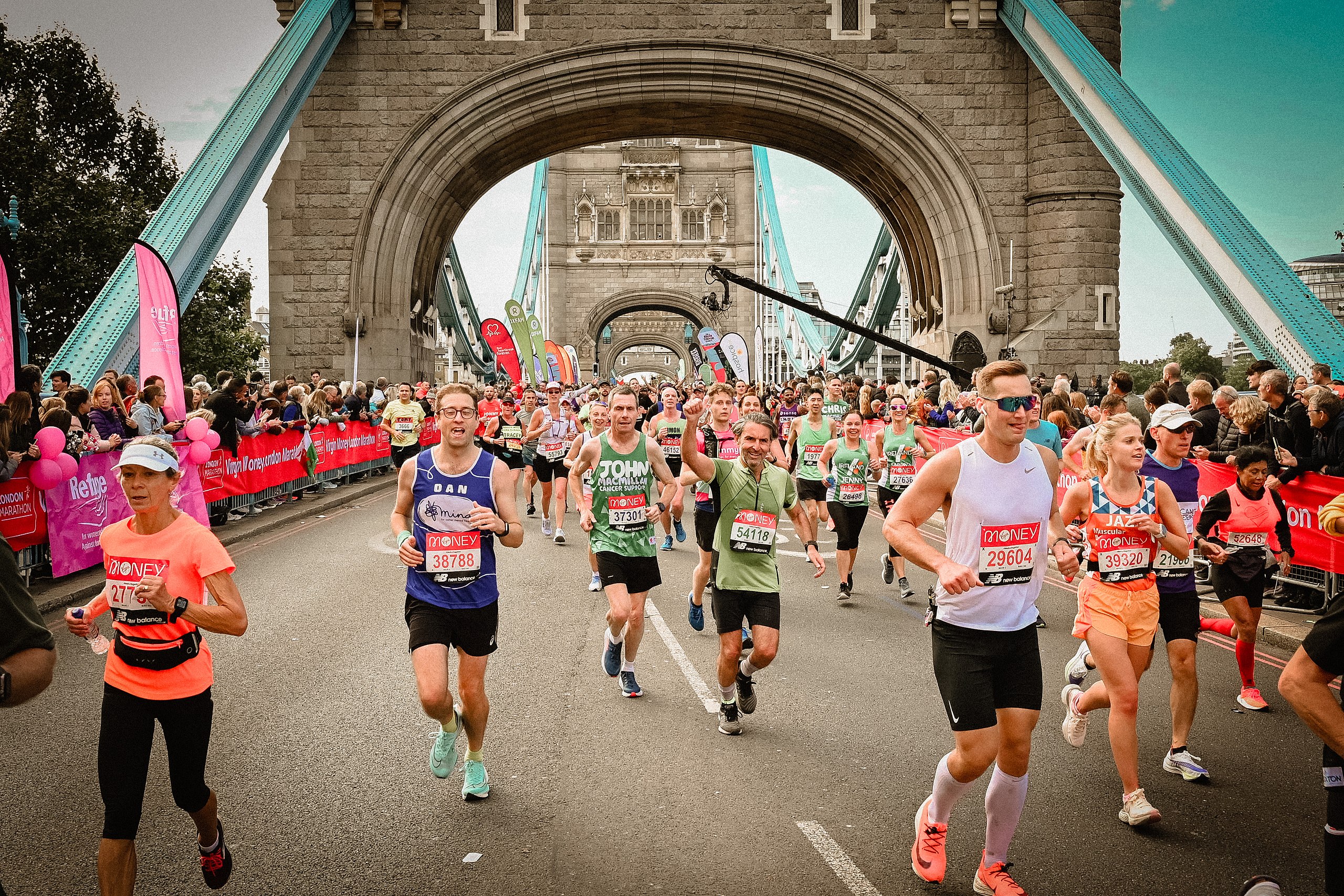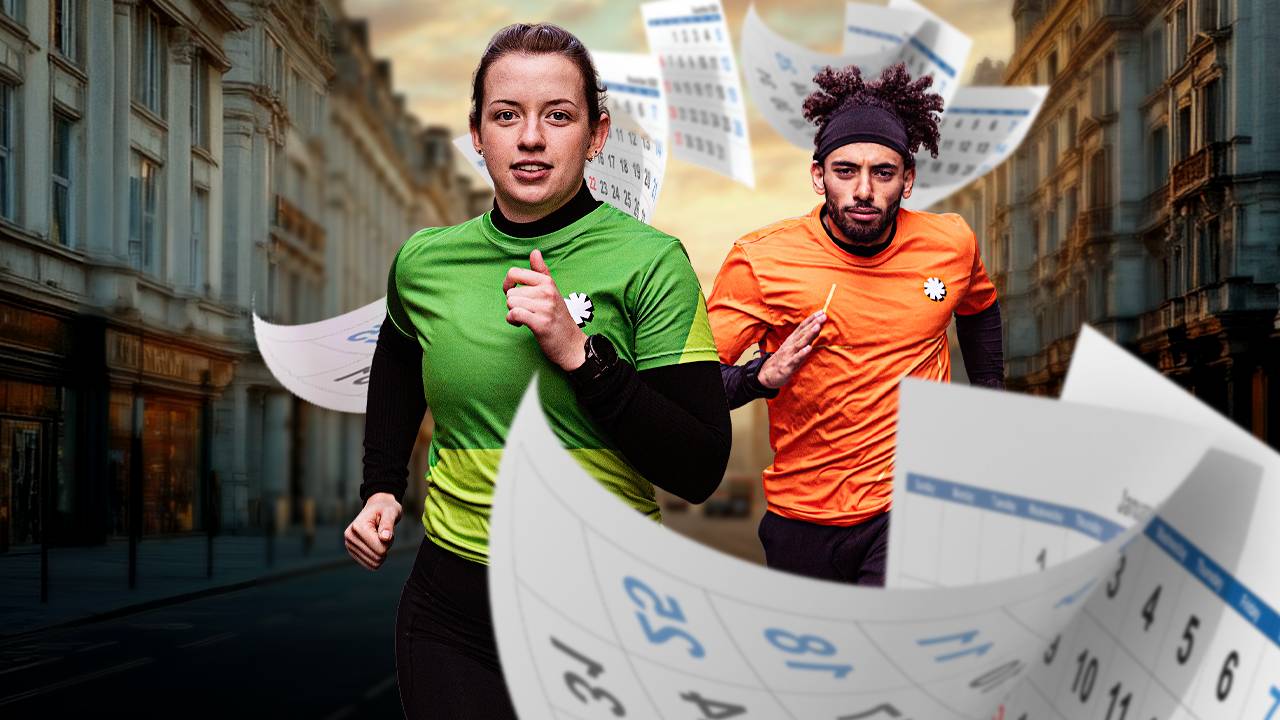What Should Your Longest Run Be In Marathon Training?

You’ve signed up for a marathon and you know you’re going to have to run 26.2 miles or 42.2 km. But how far should your longest training run be before a marathon?
If you’re currently working towards a marathon, then here’s everything you need to know about training for a marathon.
WHY LONG RUNS ARE IMPORTANT FOR MARATHON TRAINING
Every week in your marathon training block you’ll have a long run, which most people run on Saturday or Sunday. It’s arguably the most important run of the week for marathon training.
There are many reasons why long runs are so important to marathon training.
- They help you get more comfortable with running for long distances, and by adding a little more time or distance each week, you slowly build up your cardiovascular fitness as well as your muscular tolerance to running further. But it’s very important to gradually increase the distance each week to reduce the risk of injury.
- Long runs allow you to properly practise your race nutrition, so you can get used to drinking and taking gels while running. You can also practise a pre-run breakfast and wearing all your race day kit, including your shoes.
- Long runs help us work on the mental strength needed to run a marathon. Those longer runs are challenging, so if you can get through them in training, you’re better prepared and more confident for race day.
But there can be some negatives to long runs as they are challenging and can leave you fatigued for the next week’s training. For your longest long run you want to ensure you have good nutrition before, during and after, and allow enough rest and recovery time – we’ve got some top long run tips at the end of this piece.
DON’T FEAR THE LONG RUN!
When you begin training, the long runs in your plan may seem daunting – how can you ever run for three hours?! – but know that you’ll increase your long run distance slightly each week, and will gradually build up to those longer runs.
It may not feel like it in the beginning, but you will be able to build up the fitness to do those runs. You just need to be patient and consistent in your training. Do your best to try and complete your long run every week – if you need to skip a run, or change your training one week, then try to always find time for your long run.
HOW LONG ARE THE LONGEST LONG RUNS IN MARATHON TRAINING
Look at dozens of training plans and you’ll see lots of different distances for the peak long run, but for most marathon training plans the longest run will be 16-22 miles / 25-35km / or up to 4 hours. Your longest long run will be three or four weeks before your marathon.
But it’s an individual thing for runners and the more marathons you do, the more you know what works best for you. Some runners like to do a few 16 mile long runs, while others favour running several 20+ mile runs to feel prepared, and some even like to run 25 miles or 40km. Many training plans will also focus on time, not distance. So your longest runs will be between three and four hours, depending on your goal finish time.
Asking around The Running Channel office, most people would do two to four long runs up to around 18.5 miles / 30km, perhaps with one of those going slightly longer long (20-21 miles / 32-34km).
A couple of the faster marathoners in the team would run up to around 23 miles / 37km as their longest run, with three or four runs over 20 miles / 32km.
WHAT DOES A MARATHON TRAINING LONG RUN LOOK LIKE?
For most of your training, your long runs will be run at a relatively easy pace that you can maintain for the duration of that run. Especially early in your training block, the main aim will be to complete the distance or duration, without any focus on pace.
If it’s your first marathon or you don’t have any specific time goals in the race, then all of your long runs will be done at whatever pace is comfortable for you. Try to run at an effort that you can hold for the whole length of the run.
If you’re chasing a certain time, then as the race gets closer you may want to think about doing some marathon-specific long runs.
For example, if you have a 20 mile/32km run you could try a ‘negative split’ long run by doing the first 10-14 miles (16-23km) at a steady pace and the rest at goal race pace – this prepares your body to run at goal pace while fatigued. Another idea is to do two blocks of 10k / 6 miles at marathon effort (so 5k warm up, 10k marathon block, 5k steady, 10k marathon block, 1-5k cool down).
While your long runs are very important, they are not the only run in your week, and the progress of marathon training is a cumulative process, where every run ultimately adds to your fitness. You need to have a balance of easy running, some faster runs and your long run each week. Here’s every type of run explained.
WHY THE BIG RANGE IN LONG RUN DISTANCES?
It’s likely that your longest long run will depend on your goal time.
Target marathon time and longest long runs in distance and duration:
- Sub 2:30/elite marathoner: 22-25 miles / 35-40km (2:15-2:45)
- Sub 3:00 marathoner: 20-24 miles / 32-39km (2:40-3:10)
- Sub 4:00 marathoner: 17-20 miles / 26-32km (3:15-3:45)
- Sub 5:00 marathoner: 16-19 miles / 26-30km (3:30-4:00)
- 6:00+ marathoner: 15-16 miles / 24-26km (4:00)
In general, you won’t want to do a long run which lasts much more than three hours (or if you do run longer then you’ll want to plan for additional recovery time). If you are aiming to run your marathon in five or six hours, then that might mean a four hour long run, which could be 15 miles/24km, and that’s absolutely fine.
If your longest training run will be 15-16 miles/24-26km, then try to do this distance up to three times during your training, and also do your best to be running four times per week in total to build up your overall running volume. Don’t think ahead to race day, and just focus on getting as much good training in as you can – race day feels very different to training runs.
Like we’ve said, marathon training is not just about your one weekly long run, it’s about everything you do and building up your general fitness and strength.
WOULD YOU EVER RUN A MARATHON DISTANCE WHILE TRAINING FOR A MARATHON?
We wouldn’t advise this for inexperienced runners. Completing a 26 mile run is hard on the body and requires good strength and then a priority on recovery, which often means that you have to miss one or two quality runs just to add the extra miles to a long run.
More experienced runners and elites may choose to do a long run that is very close to a marathon distance, though they won’t run the whole distance at race intensity to ensure they are able to recover properly to maintain their training in the following week.
If you’re a runner that feels like they need to run all or most of the distance before the race, then make sure you are well-fuelled before the run, take enough energy on during the run, and plan to have additional rest and recovery time afterwards.
TOP MARATHON LONG RUN TIPS
Your long runs will increase in duration over the course of your training block. As you get closer to race day, the final few long runs should be seen as dress rehearsals for your marathon, and you should think about:
- Try and plan your route in advance so that you know which way you’re going, and you know that it’s roughly the right distance
- As you get closer to race day, run routes or terrain similar to your race course. If it’s a hilly marathon, then find a route with similar hills, and if it’s a trail marathon then try to do some training on the actual course, if you can
- Carb-load and get well hydrated in the day or two before your long run to practise the food and drink that works for you before running. Then practise your pre-run breakfast and eating it with similar timings to your race (so if you start your race at 9am, get up to eat your breakfast around 6am, then leave to run at 9am).
- Try out your race nutrition, so carry water and the number of gels you expect to take during the marathon.
- Do at least one run wearing the full kit you plan on using in the marathon, just in case you find that something rubs when you run (and work out how to deal with that!).
- Don’t panic if you have a bad long run. These are challenging distances. Try to recover well, try to figure out what caused you to struggle and come back next week better prepared.
The race experience is also very different to training. You get to the start line having tapered for your marathon, so you should feel fresh, and you’ll have people all around you cheering you on which helps carry you those extra miles.
Want more marathon and running tips? You can sign up to our newsletter. Or have you heard about The Running Club? It’s a community of runners of all levels who share advice and support with each other.

***
Here’s Sarah taking you along with her on her longest run before the 2024 TCS London Marathon



























Running News
Ingebrigtsen Stars at World Athletics Indoor Championships 2025 – Plus All The Winners!
Sam Ruthe Is First 15-Year-Old To Run A Four-Minute Mile!
Eliud Kipchoge Will Run The 2025 Sydney Marathon!